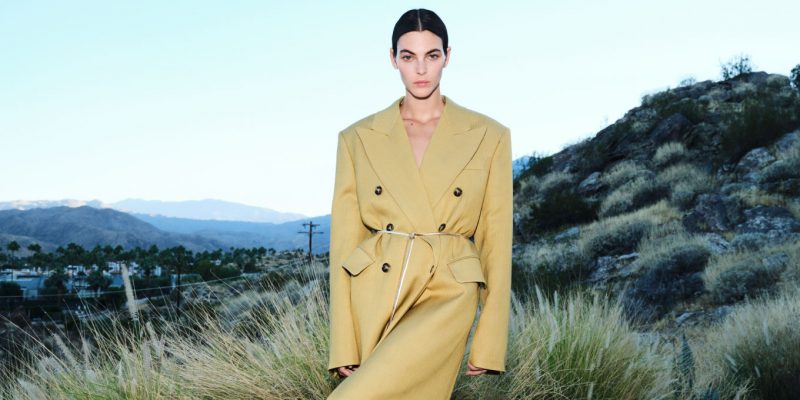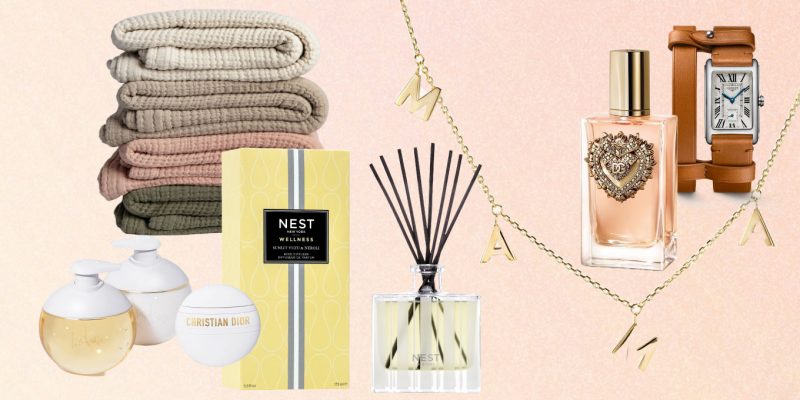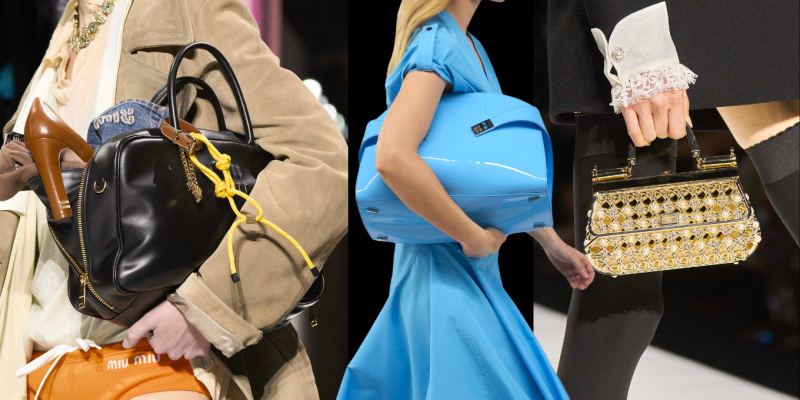Fashion
What Kourtney Kardashian-Barker’s Boohoo Collab Says About Greenwashing
It has become a toxic trend amongst brands.
by : Samantha Vecchiarelli- Oct 7th, 2022
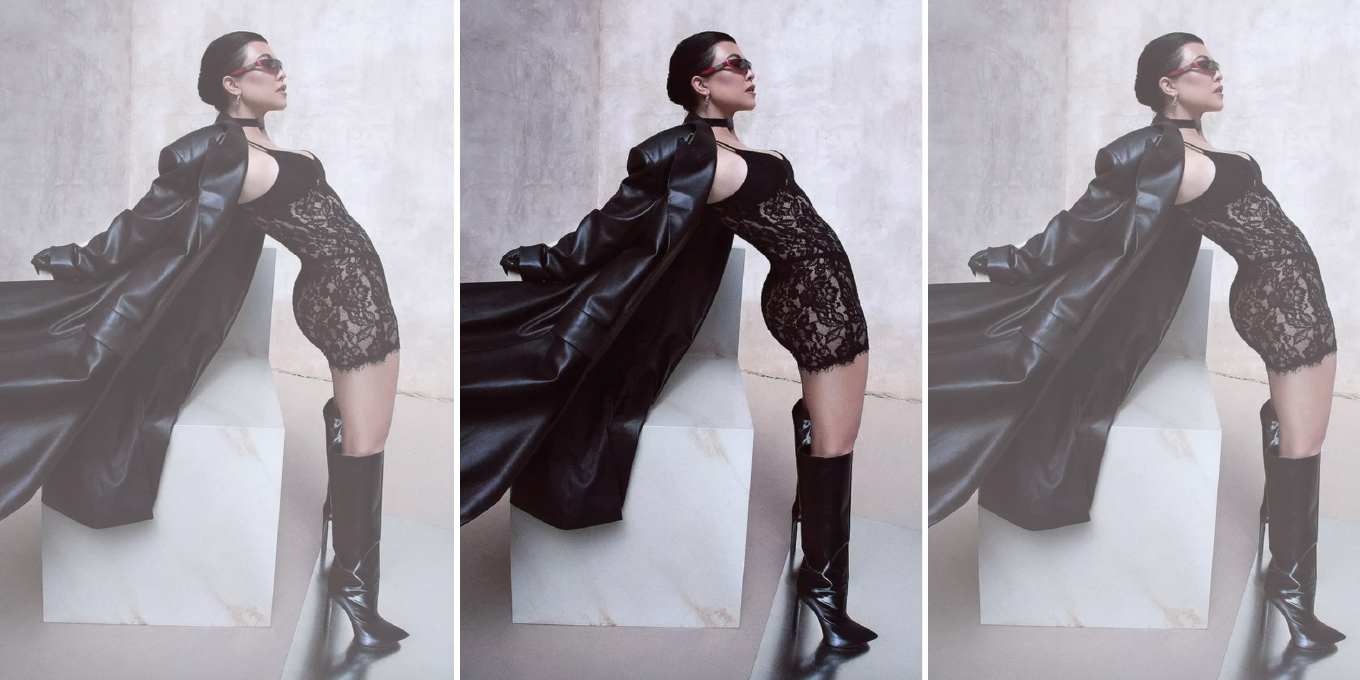
Boohoo
In 2011, it was Martha Stewart’s “GreenHouse.” In 2021, it was H&M’s Conscious collection.
Most recently, it was Kourtney Kardashian-Barker’s fashion collaboration and sustainability ambassador role with British online retailer Boohoo.
“Greenwashing,” is when a company markets itself as eco-friendly instead of taking the necessary steps to actually reduce its environmental impact. This concept is taking the fashion industry by storm. In recent years, popular celebrity figures and clothing brands—namely fast fashion ones— have been profiting off of the trend which disguises the reality of unsustainable practices. Companies that participate in greenwashing are pretending to go green to achieve a different type of green—money.
What is greenwashing?
Greenwashing- also known as “green sheen,” is a term originally coined by environmentalist Jay Westerveld. It refers to when companies market or promote themselves as green-conscious or eco-friendly in order to make themselves seem more appealing to consumers. This false narrative may entice individuals to support the brand if it’s believed that the organization is taking the necessary steps to reduce its environmental impact. However, this act of “saving the environment” is all part of an elaborate facade. These companies use trending buzzwords like “[made with] recycled materials” and “green” to promote their products, and often don’t back up their claims with figures or facts that outline their contributions to the environment.
In 2011, lifestyle businesswoman and TV personality, Martha Stewart, came under fire for lending her name to a KB Home “GreenHouse”, which had a hefty price tag of $380,000, making green living a premium expense. The U.S. based homebuilding company stated this idea home was “the first net-zero-energy home in the KB lineup.” The brand advertised the “GreenHouse” as an “eco-home,” which was a concept home styled by Martha Stewart—but it cost 50 per cent more than other Martha Stewart-inspired homes built by KB Home at the time. This was largely due to “expensive eco-friendly features that were only offered to buyers as “options” to a stripped-down -and much cheaper- non-greenhouse,” as reported by CBS.
In 2021, fashion and accessory brand, H&M also found itself in hot water after being exposed for greenwashing its Conscious Collection. A lawsuit was eventually filed against the brand for profiting off of greenwashing and questioned the sustainability of its clothing. Although the brand is typically known for being transparent in nature, a deep dive into the “environmental scorecards for its products was actually misleading,” according to The Cut.
Celebrities and brands have been jumping on the greenwashing bandwagon since the early 2010s, and Kourtney Kardashian Barker’s latest collection with notorious fast-fashion brand, Boohoo is no different.
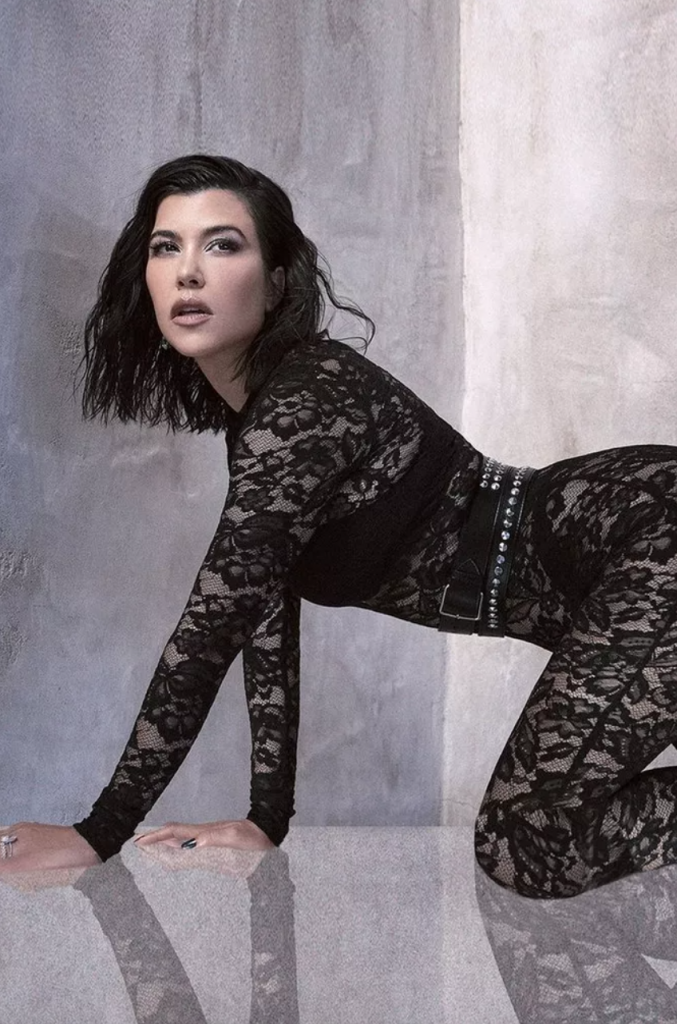 Boohoo
BoohooKardashian-Barker recently took to Instagram to announce her latest Boohoo collab, as well as her role as “sustainability ambassador.” She was immediately met with backlash online for partnering with one of the world’s leading fast-fashion brands. Comments on this Instagram post promoting the collaboration questioned how sustainability and her ambassador role played a part in this collection. One user wrote, “Producing something ‘new’ and adding 2 more collections and more products is not the way to go. Why not REDUCE their output as part of your ambassadorship. The answer is not MORE pollution.” While another user commented on the same post: “FAST FASHION WILL NEVER BE SUSTAINABLE. You literally just jeopardized your brand.”
Fast-fashion brands are known for mass-producing budget-friendly, trendy clothing and accessories that are made in unsustainable ways and are instead extremely wasteful.
This is where Kardashian Barker went wrong. By endorsing Boohoo- and by extension, the fast-fashion industry- she compromises her personal beliefs in regards to maintaining overall wellness because when it comes to fast fashion, wellness isn’t achievable. Textile waste, unethical labour, and harsh working conditions are just some of the consequences of the fast fashion industry.
Kardashian-Barker admitted to going back and forth with the brand to take part in the collab but eventually agreed to do it because fast fashion isn’t going anywhere. “Boohoo approached me to be a sustainability ambassador, and though I knew it would get backlash because the two just don’t go hand in hand, I thought about the fact that fast fashion, or the fashion industry in general, isn’t going anywhere,” she wrote in her caption.
Kardashian-Barker’s Boohoo launch was met with online criticism as she openly agreed to work with them through a sustainability ambassador role. Yet, Kardashian-Barker was adamant that she thought “pushing Boohoo to make some initial changes, then holding them accountable to larger changes would be impactful. But as long as it’s fast-fashion, it can’t be sustainable.
When consumers began looking into the details surrounding the 45-piece collection, they noticed that claims of sustainable practices were met with harsh realities. In a TikTok from creator @delilah_isabel, she states that the collection is still made with unsustainable materials, those of which are deemed to be harmful to the environment— Despite being made with some recycled materials, this collection is in no way sustainable as it still follows the brand’s fast fashion process.
@delilah_isabel Replying to @ofgoodssold sustainable or greenwashing? 🤨 let’s chat #kourtneykardashian #boohoo #kourtney #fastfashion #fastfashionsucks #sustainablefashion #ecofriendlylifestyle
Boohoo states this is “a collaboration to discover more about sustainability and style.” It’s evident that the brand needs to take a step back to reevaluate its approach to sustainability in order to create proper change. In her Instagram post, Kourtney mentioned that she will “invite any experts who have ideas, suggestions to reach out,” as she hopes to elaborate on their changes and what they’ve learned.
Katina Boutis, Director of Sustainability at sustainable fashion brand, Everlane, is speaking up against greenwashing as, “one of the biggest problems in our industry.” As an expert in the sustainable fashion space, she is concerned with greenwashing. “The reality is that there are few universally agreed upon standards to measure or communicate sustainability efforts in the fashion industry, and even fewer regulations to hold them to,” she explains. “As a result, many brands are able to make and overstate claims around sustainability that confuse customers and are difficult to substantiate.” Boutis also notes that the term “sustainable” is extremely broad. “ While it’s useful in some ways, it also lacks the specificity and nuance that this area requires!”
It’s clear the dynamic in the fashion industry is glaring, and brands like Everlane have to keep the conversation going and show how consumers can support companies that are dedicated to implementing sustainable practices into their garments. “No individual brand has all the answers and no fashion company making clothes can claim to be 100% sustainable. We know that fashion can be a dirty business, and we’re on a mission to leave the industry cleaner than we found it,” says Boutis. “It’s important to reduce our environmental footprint as quickly as possible and to collaborate and share information along the way. That’s why we share our factory partners, our environmental targets with progress updates, and details about our material choices — with goals to do even more in the near future.”
Sustainable brand owner Elisa Rossow, founder of Elisa C-Rossow, shared similar sentiments about greenwashing. Rossow, who has been in the industry since 2008, said she disliked how, “it’s not about the clothing- it’s about making money from the clothing.” As a result, she is actively working to change consumers’ minds about how to detect greenwashing through her small business. Rossow does this by being as transparent as possible on her own website in order to show consumers what to look for when supporting green-conscious companies.
“[It’s] important to be transparent and educate consumers,” says Rossow. Every piece Rossow creates is ethically sourced, and crafted and the process of making the garment is clearly outlined on her website. When it comes to her brand, Rossow stresses the importance of products being made locally, in combination with being made-to-order, to ensure minimal environmental impact and waste.
When it comes to greenwashing, Rossow says it’s important for consumers “to ask questions.” What materials are they using? Where is it made? How is it made? “If you’re not satisfied with your answers, don’t buy. Instead, go to the brand and ask them these questions.”
Newsletter
Join our mailing list for the latest and biggest in fashion trends, beauty, culture and celebrity.
Read Next

Fashion
Are Fashion Brands Getting Greener?
While the fashion industry is making a lot of noise about being more sustainable, a closer look shows that its earth-friendly commitments are often more illusion than reality.
by : Marouchka Franjulien- Apr 19th, 2024

Beauty
What Beauty Packaging Is Actually Sustainable?
We sought out leaders in the field to help us get to the bottom of the blue bin once and for all.
by : Victoria Christie- Apr 19th, 2024

Culture
This University Elevates Women to New Professional Heights
You shouldn’t have to pause your life to move forward in your career.
by : ELLE Canada- Apr 16th, 2024

